Aerospace, automotive summits heading to Birmingham this week
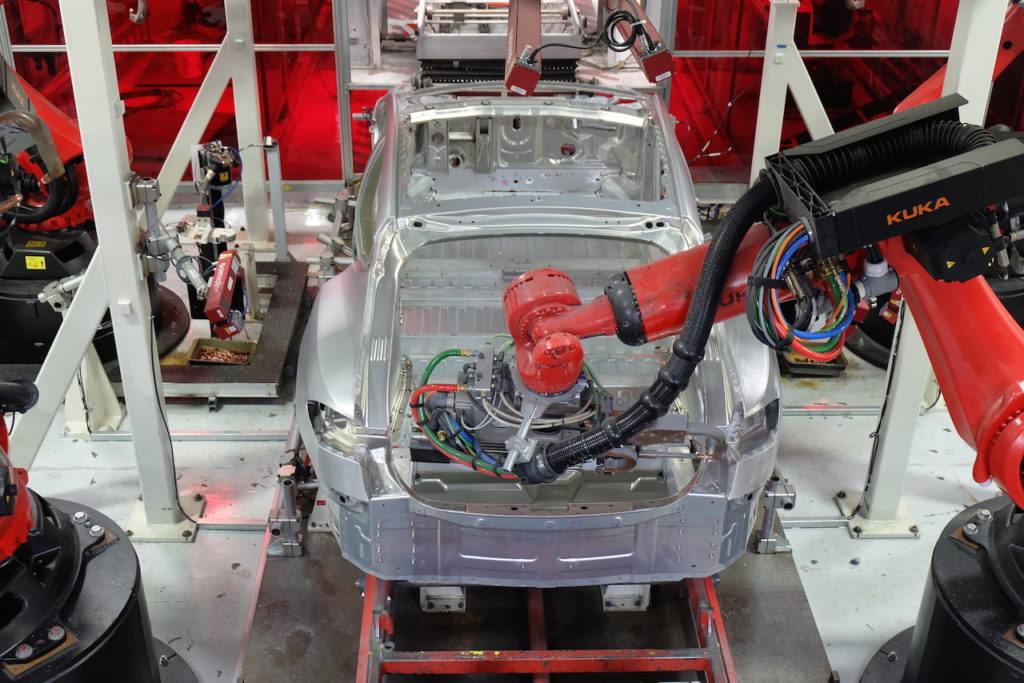
Birmingham is hosting a pair of business summits this week that showcase Alabama’s growing automotive and manufacturing industries, providing participants with high-level networking opportunities and one-on-one meetings. The conferences are the Aerospace Innovative Technology Summit (AITS), held May 7-9, and the Automotive Advanced Technology Summit (AATS), held May 8-9. Both events are taking place at the Birmingham-Jefferson Convention Complex, with 200 companies expected to participate. The Alabama Department of Commerce is among the sponsors of the summits, which feature workshops, presentations and business-to-business meetings. “The automotive and aerospace industries are major drivers of economic growth in Alabama, and these business conventions in Birmingham offer a pathway for companies from across the country and around the world to seek new opportunities and understand how their peers are utilizing and advancing the latest technologies,” said Greg Canfield, secretary of the Alabama Department of Commerce. “Besides companies from Alabama and multiple U.S. states, an international presence representing 11 different countries is here to participate,” he said. “These summits bring a focus on innovation, which is critical to growing and sustaining these manufacturing sectors and placing Alabama in a leading role for the latest technologies.” Focusing on innovation The Aerospace Innovative Technology Summit targets the aerospace, space and defense industries, all with a significant presence in Alabama. With a focus on new technologies being deployed in the sector such as 3D metal printing, digitalization of manufacturing and cyber security, the event aims to connect leading companies and participants in the sharing of ideas in the application and development of these innovations in their businesses. To kick off the aerospace conference, Canfield will provide an overview of the industry sector in the state. Other scheduled speakers include R.G. “Corky” Clinton Jr. of NASA’s Marshall Space Flight Center, Nick Bowman of GKN Aerospace and Jeff Chang of Lockheed Martin. The Automotive Advanced Technology Summit will focus on advanced manufacturing and new technologies at use within an industry growing rapidly in Alabama. Scheduled speakers include Mark Brazeal of Mazda Toyota Manufacturing USA, Tom Shoupe of Honda of America Manufacturing, and Brad Newman of ZF Chassis Systems in Tuscaloosa. Also speaking is Chuck Ernst, a former Honda Alabama executive who now serves as manager of the Alabama Robotics Technology Park, a unique training facility in Decatur. “It is an honor to have Birmingham chosen as the site for both of these conventions,” said Brian Jennings, vice president of economic development for the Birmingham Business Alliance (BBA). “It speaks to Alabama’s prominence in both the aerospace and automotive industries, and we look forward to bringing so many people together to foster continued growth of both industries.” Joining the BBA and the Department of Commerce in supporting the business conferences are the City of Birmingham, Jefferson County, the Birmingham Airport Authority, the Alabama Automobile Manufacturers Association and the Alabama Community College System. Mayor Randall Woodfin said Birmingham is the ideal location for the events. “Now, more than ever, Birmingham is focused on bringing high-quality technology jobs to our city. The summit gives a great chance to identify innovative partners that share our commitment to the next generation of manufacturing in the aerospace and automotive industries,” Woodfin said. This story originally appeared on the Alabama Department of Commerce’s Made in Alabama website.
Personnel note: Birmingham Business Alliance names Fred McCallum interim president, CEO
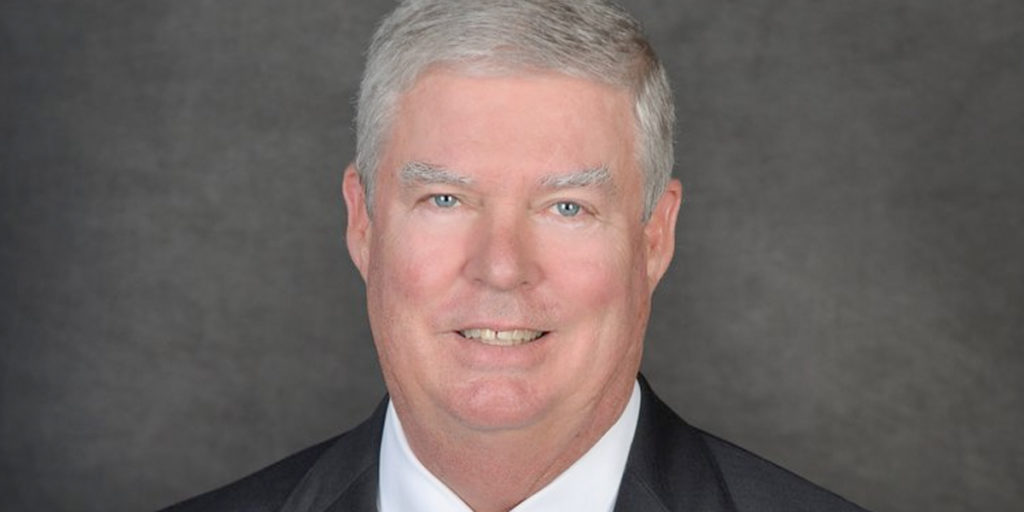
The Birmingham Business Alliance (BBA) announced retired AT&T Alabama President Fred McCallum has been named interim president and CEO on Thursday. McCallum is a former BBA chairman. “We are proud to have Fred join the BBA in this transitional time,” said Nancy Goedecke, 2019 Chairwoman of the BBA. “His leadership and prominence in the business community – both local and statewide – will ensure the BBA remains on solid ground during the search for a permanent CEO. We are confident Fred will set a strong example of collaboration and cooperation for the organization moving forward.” In addition to serving as Chairman of the BBA in 2013, McCallum was an active member of the Public Policy Committee for many years and served in volunteer roles during the creation of the BBA in 2009 and in its first strategic plan, Blueprint Birmingham. He will oversee daily operations of the BBA during the search for a permanent president and CEO, being conducted by the BBA’s Executive Committee. “I’m excited to return to the work of the BBA and serve its investors and the Birmingham business community in this role,” said McCallum. “My priorities will be to ensure that the BBA remains focused on growing jobs in the Birmingham region and that we are meeting the needs of our investors. This isa transformative time for Birmingham and the BBA, as we recognize our 10th year of helping our region grow.” McCallum is taking over for current BBA CEO Brian Hilson who announced his resignation last month in order to take another economic development position in the state. His new position has yet to be announced.
$215M U.S. Steel project provides spark for Alabama steel industry

United States Steel Corp.’s plans to invest $215 million to install a technologically advanced electric arc furnace at Fairfield Works is expected to provide a boost to Alabama’s steelmaking industry in its historic home. U.S. Steel had initiated construction of the EAF at its Tubular Operations in Fairfield in March 2015 but suspended construction in December 2015 because of unfavorable market conditions. The project’s revival means the addition of 150 jobs at the Jefferson County facility. The company said the EAF will have an annual capacity of 1.6 million tons. “This puts Birmingham back on the map in the steel industry, which is a backbone of our region,” said Mark Brown, vice president of Business Retention and Expansion at the Birmingham Business Alliance. “The sustainable technology that will be used in the EAF will solidify Birmingham’s future in the industry for years to come. “U.S. Steel’s investment will have a monumental impact and will drive future growth for our region,” he added. U.S. Steel CEO David Burritt cited improved market conditions, President Donald Trump’s strong trade actions, support from the United Steelworkers and incentives from the State of Alabama and the Jefferson County Commission as reasons for the project’s revival. “This investment is an important step to improve our cost structure and positions our tubular business to win over the long term,” Burritt said. “We are committed to investing in the sustainable steel technology required to be a value-added tubular solutions provider for our customers.” AIDT support AIDT, the state’s primary workforce development agency, agreed to provide recruitment, pre-employment training and certain post-employment training support for the expected 150 new employees at U.S. Steel’s Fairfield Works. The AIDT commitment is estimated at nearly $1.4 million, according to data from the Alabama Department of Commerce. The BBA said U.S. Steel employs 750 in Fairfield and expects to add the 150 new jobs by 2020, bringing the total employee count to 900. The project will provide a lift to employment in Alabama’s steelmaking industry. Primary metals manufacturing jobs in Alabama stood at around 23,000 in October 1997. Today, the figure is just over 17,000, after adding 3,000 jobs since mid-2009. In Birmingham, primary manufacturing employment is around 5,500, up slightly since late 2016 but down over the long term, according to data from the St. Louis Federal Reserve. U.S. Steel has been making steel in Birmingham for more than 100 years. Construction on the EAF is expected to begin immediately, the company said, and the furnace is expected to produce steel rounds by late 2020, according to the BBA. This story originally appeared on the Alabama Department of Commerce’s Made in Alabama website. Republished with permission from the Alabama NewsCenter.
Birmingham Business Alliance launching a talent recruitment initiative

The Birmingham Business Alliance has enjoyed great success bringing industry to the metro area. A new initiative aims to bring people to the area to fill the jobs of tomorrow. At the 2018 BBA Chairman’s Meeting at the Alys Stephens Performing Arts Center at UAB, the metro area’s leading economic development organization unveiled a talent recruitment plan that officials said will be critical to growth. “Without question, workforce issues including availability of our workforce, the workforce’s alignment with career opportunities and, third, the perception that Birmingham can deliver a workforce to attract and support employers will be the most important economic development issues we will face in years to come,” said BBA CEO Brian Hilson. The BBA has hired New York-based Development Counsellors International (DCI) to help develop the talent recruitment plan. The BBA has worked with DCI for the past few years promoting and building the metro area’s image and recognition in national and international media. Andrew Levine, DCI chairman, said Birmingham has a good story to tell companies and potential workers. “You’re at a 3.5 percent unemployment rate in the Birmingham metro area, so companies right now, if they’re going to be able to grow, they have to find employees, they have to find workers,” Levine said. Levine said by taking this on as a key initiative, the BBA is taking the lead on other cities. “It is kind of a new day. This unemployment rate has gone down so much and the labor market has gotten so tight, it’s really in the last two years that people have started focusing on talent attraction,” Levine said. “There are some good models out there. I don’t think anyone has completely figured it out. The BBA is really a bit ahead of the game in terms of what other communities are doing, so there is a running start here that we have.” DCI is compiling data by interviewing human resources directors at Birmingham companies, employees and potential employees and mapping out the important components of talent recruitment in the metro area. Levine said the question they need to answer is: “How do you market Birmingham not just to companies, not just to visitors, how do you market Birmingham to potential residents?” He believes the key is to marry talent recruitment with tourism and business recruitment. “The three things should work all together and be integrated,” he said. DCI recently surveyed 1,000 millennials, who now make up the largest part of the workforce. The survey sought to discover what is most important to them in choosing a place to live and work. While the expectation was that issues like arts, entertainment and culture would carry the most weight, the results showed that millennials are practical and care most about the cost of living, housing costs and employment opportunities for their spouses. Hilson said that shows that any strategy must appeal to a wide range of workers. “Talent recruitment comes in lot of different flavors and shapes,” he said. “It’s based upon quality of life perceptions. It’s based upon job availability.” Nancy Goedecke, CEO of Mayer Electric, took over as BBA chairwoman at Tuesday night’s meeting, taking the gavel from Lee Smith from BBVA Compass, who ended his term. Goedecke said she has found with her business and her efforts in promoting Birmingham to others that the biggest hurdle is getting them to the Magic City to experience it for themselves. “We have got to continue to develop our talent, get people interested in coming to Birmingham,” she said. “The key is, once we get them to Birmingham they don’t want to leave. We’ve got a real plus in that area, but we’ve got to get them here. There is enough excitement in the air that will attract people to do just that.” Addressing workforce needs will be necessary for the BBA to build on its momentum since the Great Recession of a decade ago. Since 2011, metro Birmingham has announced 23,423 new jobs by new and expanding companies that have announced $5 billion in new investment. So far in 2018, Hilson said the metro area has announced 3,908 jobs by 24 new and expanding companies in the BBA’s core business sectors. That’s about 1,000 more new jobs than at this time last year. Also this year, the seven-county metro area has seen $958 million in new capital investment announced, a $450 million increase over what was announced a year ago. “While we are on track to meet the job and investment goals that are part of our BBA current five-year strategy, we all agree that a higher level of economic development accomplishment is attainable,” Hilson said. “Therefore, the BBA is adjusting our strategy and our expectations, and we will begin implementing those plans beginning early next year.” Birmingham Mayor Randall Woodfin is coming off his first year in office and said he recognizes what BBA has done while acknowledging more needs to be done. “As a city, I believe we’ve seen strong economic progress over the last year,” he said. “We’re grateful to our partners at BBA who have helped us build momentum and we look forward to the work we will continue to do together to move our community forward.” But not everyone shares in that success, Woodfin said. “Birmingham is a tale of two cities and each time I have the chance to speak to a set of leaders like each of y’all sitting in this room, I want to share that tension between the success some our businesses feel and the real struggle some our neighborhoods are up against,” he said. Woodfin noted that 30 percent of the city’s residents and 42 percent of its families live in poverty. The unemployment rate is twice as high among black residents compared to white, and four in 10 black adults have stopped looking for work altogether, he said. Alabama Commerce Secretary Greg Canfield praised BBA for tackling tough issues related to growing the region.“The bottom line is that we are making progress, but we are not yet where we need
Alabama’s largest county looks to continue economic development momentum
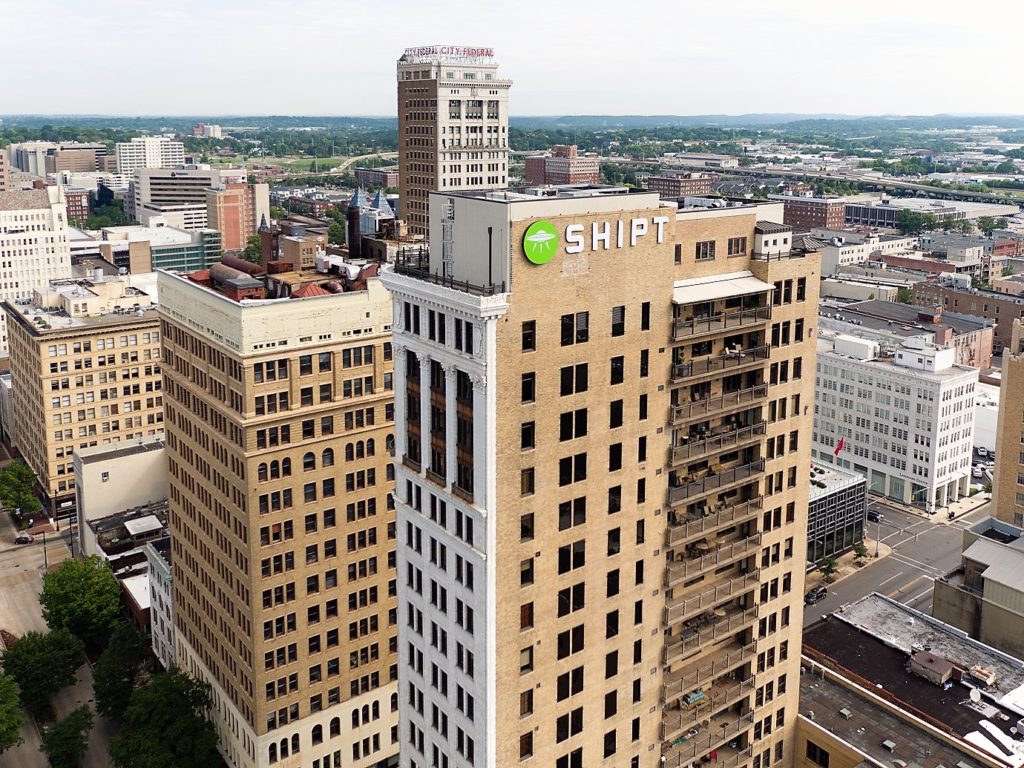
With the recent announcements of thousands of jobs coming into Jefferson County in connection with Amazon’s advanced robotics fulfillment center, DC BLOX’s data center and Shipt’s decision to keep its corporate headquarters in Birmingham, local officials are working from a playbook that has four steps, they say. It all begins with Alabama’s business climate that has been ranked as best in the United States for growth potential and workforce training by Business Facilities magazine, said Commissioner David Carrington, chair of the county’s Finance, Information Technology and Business Development Committee. The second is that Jefferson County is the economic center of the state, with the largest population and number of jobs. In 2016, companies announced they were going to create 14,500 jobs and invest $5.1 billion in Alabama. The Birmingham-Hoover metro area accounted for about 20 percent of those jobs and 25 percent of the capital investment. Jefferson County alone was responsible for 1,436 announced jobs and $506 million in capital investment. “In fact, the metro area’s gross domestic product is greater than Mobile, Montgomery and Huntsville combined,” Carrington said. “In 2017, according to the Alabama Department of Commerce, Jefferson County led the state with 2,200 new announced jobs in targeted industries.” The next step is collaboration among partners that often include the Birmingham Business Alliance (BBA), University of Alabama at Birmingham (UAB) and, if a proposed site is in a city, the city. “As in most successful projects, it was a well-coordinated community effort that led to a successful conclusion, and we’re very grateful to our partners and allies for their great work on this project,” said Lee Smith, East Region CEO for BBVA Compass and 2018 chairman of the BBA, after the area secured Amazon’s $325 million investment. “The county actively listens to the prospect’s needs and then participates in the development of an aggressive marketing plan with (those) partners,” Carrington said. Fourth, a project team is in place that “leverages our community’s assets,” Carrington said. “. . . We will talk about our enviable road and rail transportation network when talking to a distribution company; or UAB, Southern Research and Innovation Depot when talking to a STEM (science, technology, engineering and math) company; or our central, geographic proximity to Mercedes, Honda, Hyundai, Volkswagen, Kia and the soon to be open Toyota/Mazda plants when talking to an automotive supplier.” All of those steps are done under a positioning umbrella, he said. “Even if we don’t win a project, we want the company and their consultants to ‘have a good feeling’ about the community so we will be considered for a future project,” he said. Carrington pointed to the community’s Amazon HQ2 “BringAtoB” campaign. “The primary project team knew that Birmingham was at best a long shot, but, despite the odds, we put together an innovative vision and proposal for the company to consider,” he said. “While we didn’t win the headquarters, we caught Amazon’s attention and less than a year later announced an 855,000-square-foot advanced robotics fulfillment center in Bessemer.” Republished with the permission of the Alabama Newscenter.
Office furniture company plans $2M expansion, 8 new jobs in Birmingham
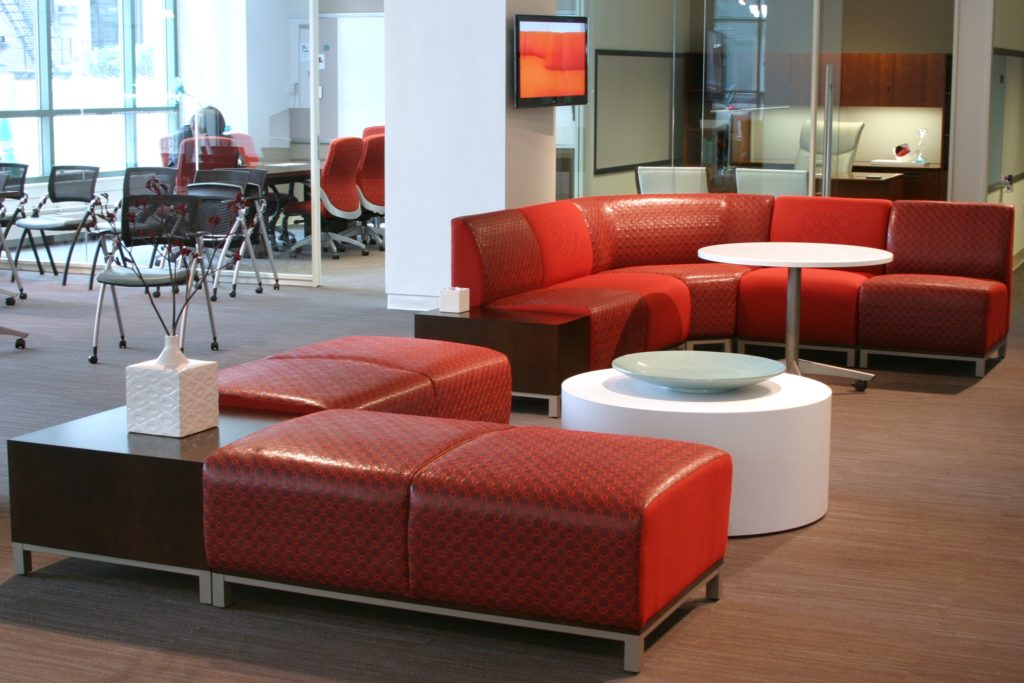
An Alabama company that produces ergonomic furniture for workplaces says its $2 million expansion will create at least eight new jobs. AL.com reports The Corona Group announced its plans to expand Tuesday. The company says it’ll purchase and renovate a roughly 55,000-square-foot (5,000-square-meter) building in Birmingham for its new manufacturing, distribution and office operations. The family-owned business’ president, Sam Corona, says the site will also serve as its showroom and production facility. Corona employs 14 people and also makes visual presentation products for the commercial office, higher education and health care markets. The company formerly known as Ergonomically Integrated Systems Inc., or eisysINC, is based in Birmingham. Birmingham Business Alliance economic development project manager lan Reeves says Corona’s expansion validates the positive business environment public and private leadership has cultivated. Republished with the permission of the Associated Press.
DC BLOX building ‘flagship’ data center in Birmingham
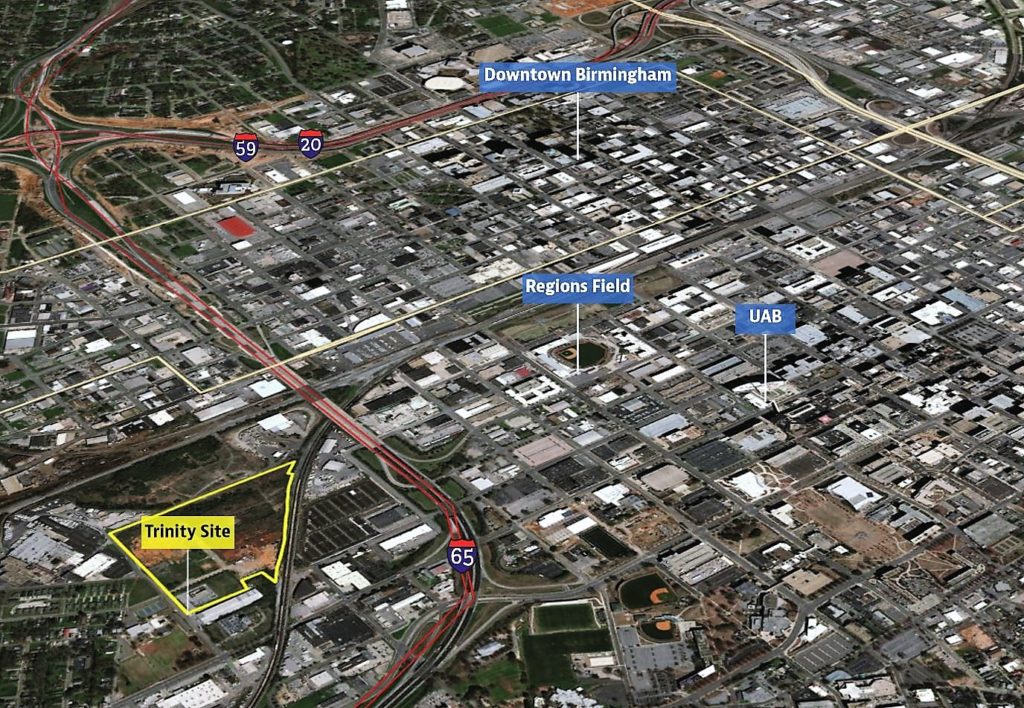
Atlanta-based DC BLOX said today it is building a data center on the former Trinity Steel site in downtown Birmingham, creating 20 jobs initially with the potential to grow up to $785 million in capital investment and add jobs over the next decade. “The significant investment being made by DC BLOX to open this data center in Birmingham will not only create high-paying jobs, but also bring an exciting new chapter to a neighborhood in the city with a long industrial history,” Alabama Gov. Kay Ivey said. “We’re committed to positioning Alabama for a technology-focused future and look forward to working with the company to accelerate that process.” The 31,000-square-foot first phase of the multi-tenant Birmingham data center joins others DC BLOX has built or announced in Huntsville, Atlanta and Chattanooga. DC BLOX plans to break ground in August and have a facility configurable up to 5 megawatts (MW) of customer capacity by early 2019. As customers are added, the facility can grow up to 200,000 square feet and 80 MW. Plans are for the facility to have 13,000 square feet of office space with conference rooms, staging areas and work stations. “The Birmingham data center campus will unquestionably be our flagship property, capable of scaling to over 200,000 square feet of secure, government-grade data center space,” said DC BLOX CEO Jeff Uphues. “We believe this site will be a highly compelling alternative in the Southeast to Atlanta for enterprise, hyperscale cloud, software-as-a-service, government, network and content providers. It’s our focus to create a multi-purpose innovation campus with collaborative workspaces worthy of housing global technology companies and academia dedicated to research and collaboration.” DC BLOX has been scouting sites in Birmingham for nearly a year. “DC BLOX wanted to be in Birmingham because of its strong local economy, geographic location, fiber optic network connectivity and the University of Alabama at Birmingham,” said Mark Masi, COO of DC BLOX. “We are thankful to the city of Birmingham, Jefferson County and the state of Alabama for collaborating with DC BLOX on this project.” During the construction and operational phase, the project is expected to have an economic impact of $94 million on the Birmingham metropolitan area, more than $80 million of which will be in Jefferson County, according to an analysis prepared by the Center for Business and Economic Research at the Culverhouse College of Business at the University of Alabama. The Birmingham Business Alliance commissioned the analysis. Economic impact on the state is estimated to be $99 million. “Because data centers represent the backbone of the technology infrastructure, we see strategic benefits for Alabama to host state-of-the-art centers that keep the world connected,” said Alabama Commerce Secretary Greg Canfield. “DC BLOX is joining an impressive roster of technology companies selecting Alabama for their data centers, and we want to see that list grow.” Jefferson County Commissioner David Carrington predicted DC BLOX’s data center will attract future business. “DC BLOX will be a tremendous asset to the existing companies throughout Jefferson County and a tool to attract new companies here,” Carrington said. “This takes Birmingham’s thriving innovation ecosystem beyond its usual physical boundaries of the city center and extends it into an area that will only strengthen our core.” The new DC BLOX data center brings new life to the former Trinity Steel property, which county and city officials have long sought to bring back to productive use. “The city of Birmingham was proud to work with DC BLOX to bring this significant data center project to Birmingham,” said Mayor Randall Woodfin. “In addition to utilizing a long-vacant property in our city and transforming the surrounding neighborhood, this will serve as the company’s flagship data center and a tool to attract further business to the area.” The team luring DC BLOX to the site included the Alabama Department of Commerce, Jefferson County Commission, Jefferson County Economic and Industrial Development Authority, the city of Birmingham and its Department of Innovation and Economic Opportunity, Titusville Neighborhood Association, Birmingham Industrial Development Board, Alabama Power, Spire, Economic Development Partnership of Alabama and the Birmingham Business Alliance. “The $785 million investment over the next 10 years to build this data center technology campus represents the single largest project investment in Jefferson County in many years,” said Lee Smith, East Region CEO for BBVA Compass and 2018 chairman of the Birmingham Business Alliance. “DC BLOX recognizes the importance of Birmingham’s innovation and technology economy, and they share our vision that having a location near downtown will optimize the company’s growth opportunities. As with any successful economic development project, a great team worked together with the company to ensure its needs are met and that the project is mutually beneficial to the company, community and state.” Republished with the permission of the Alabama Newscenter.
Amazon to create 1,500 jobs at Alabama fulfillment center
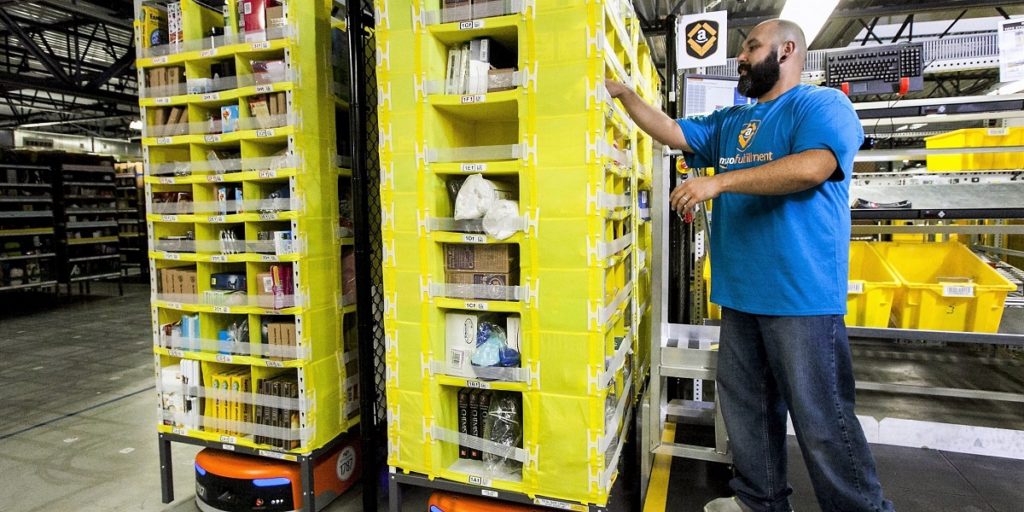
Internet retail giant Amazon confirmed plans today to open a fulfillment center in Jefferson County with 1,500 full-time employees working alongside advanced robotics technology. Amazon will build the 855,000-square-foot facility on 133 acres of property being purchased from U.S. Steel off Powder Plant Road in Bessemer, just minutes away from Birmingham. Investment in the project is expected to be $325 million. The Seattle, Washington-based company confirmed its plans for the Alabama facility today in an announcement that said the project is moving forward, following a series of public meetings with local governments. “We are thrilled to bring our first fulfillment center to the state of Alabama, creating 1,500 full-time jobs,” said Mark Stewart, Amazon’s vice president of North America customer fulfillment. “Alabama has a talented workforce and we look forward to making a positive economic impact in a state where we are committed to providing great job opportunities and an exceptional customer experience.” Employees at the Bessemer facility will work with technology created by Amazon Robotics to pick, pack and ship items to the company’s customers. “Amazon is one of the world’s most dynamic companies, and we couldn’t be more proud to see the company select Alabama for one of its high-tech fulfillment centers,” Gov. Kay Ivey said. “This facility represents good jobs for our citizens and the beginning of a long partnership that I believe will see Amazon expand and grow in Alabama in the future.” Significant impact An analysis projects that the Amazon fulfillment center will generate a significant economic impact on Jefferson County and Alabama. The center will contribute $203 million to the county’s economic output annually, while adding $123 million to the county’s GDP, according to the study prepared by the Center for Business and Economic Research in the University of Alabama’s Culverhouse College of Business. The facility will contribute $232 million to Alabama’s economic output each year and add $137 million to the state’s GDP, the study says. Bessemer Mayor Kenneth Gulley said the Amazon project represents the largest single private investment in the city’s 131-year history. As an added bonus, the company has pledged to create a tuition-assistance program for its workforce. “Amazon is bringing jobs and opportunity to our residents and students. I am particularly proud of the educational incentives Amazon will offer our young people: Get your high school diploma, work one year and receive $3,000 the next four years toward furthering your education,” he said. Growing tech jobs Greg Canfield, secretary of the Alabama Department of Commerce, said Amazon’s project perfectly aligns with a strategic emphasis to facilitate the growth of tech jobs across the state. “Amazon’s new fulfillment center in Bessemer will create a large number of high-quality jobs and feature cutting-edge automation and technological innovation,” Canfield said. “We’ve made recruiting technology-focused jobs a priority, and Amazon’s presence in the state will help us advance toward our goal.” This is Amazon’s second project in Alabama. In June 2017, the company announced plans for a $30 million “sortation center” in Mobile to accelerate delivery of online purchases. The facility will have 1,000 part-time workers during peak periods. Lee Smith, chairman of the Birmingham Business Alliance, said the successful recruitment of Amazon’s fulfillment center in Bessemer stemmed from a team effort that included a number of economic development agencies, utilities, transportation departments and others. “Amazon’s investment in our community is a big win for the Birmingham region,” Smith said. “This state-of-the-art facility will be able to accommodate an expanding workforce and a changing economy as Amazon continues to prepare for its future.” Amazon said full-time employees receive competitive hourly wages and a comprehensive benefits package, including health care, 401(k) and company stock awards starting on day one. Amazon also offers generous maternity and parental leave benefits and access to innovative programs like Career Choice, where it will prepay up to 95 percent of tuition for courses related to in-demand fields, regardless of whether the skills are relevant to a career at Amazon. Since the program’s launch, more than 16,000 employees have pursued degrees in game design and visual communications, nursing, IT programming and radiology, to name a few. Republished with the permission of the Alabama Newscenter.
Women-owned businesses get energized by business opportunities at Birmingham conference
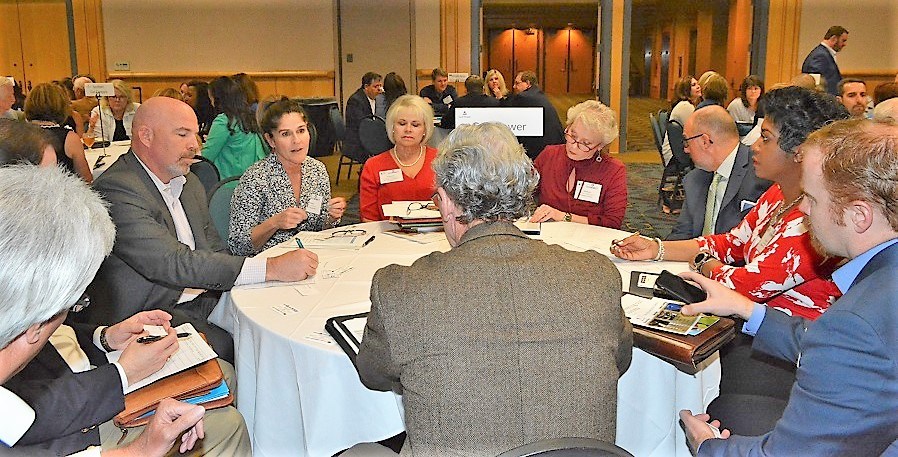
Female-owned business learned what it takes to do business with energy companies like Alabama Power at the Women’s Business Enterprise Council South’s Second Annual Power Industry Summit in Birmingham. “This is the first time we’re having this conference in Birmingham,” said Phala Mire, president and CEO of WBEC South. “It’s our second Power Summit, but it was so successful the first time, we wanted to bring it to Birmingham because we felt it was really important to be able to connect with some of our major power companies. “Alabama Power is a huge supporter of the Women’s Business Council. They are absolutely committed to doing business with women-owned businesses across our region.” In addition to Alabama Power, representatives of other Southern Company business units also took part. Glenda Thomas, a board member at WBEC South and supplier relations and diversity manager at Alabama Power, helped bring the event to Birmingham. “I thought it was very important to have an industry-focused group – this is our second annual power summit – and I thought it would be great if Alabama Power hosted and brought our Southern Company partners,” she said. “So, we’re fortunate to have Gulf Power, Southern Nuclear, Southern Company Services and the newly added Southern Gas.” CenterPoint Energy, Entergy, TVA, Mobile Area Water and Sewer System, Cleco and the U.S. Department of Energy were other participants in the conference. The Small Business Administration, Birmingham Business Alliance, South Region Minority Supplier Development Council and Edison Electric Institute Business Diversity were also involved in the summit. Scott Vowels, supplier diversity manager for Apple and author of “Hacking Supplier Diversity: Cracking the Code for the Business Case, Revenue Generation, Economic Impact, ROI,” was the keynote speaker. “This is imperative because this is where we get to meet the diverse suppliers,” Vowels said. “This is where we get to understand who they are. Because I always believe that people do business with people they know and people they like.” Vowels said for small, female-owned businesses, events like the summit can be eye-opening. “I think women-owned businesses have so much power and so much leverage that at times they don’t really understand the power that they possess,” he said. Vowels said he hoped minority businesses came away with a better understanding of the opportunities and that the corporations better understood the business case for hiring these 1q`firms. “Any businesses from staffing to IT to environmental – we have a wide variety of women-owned businesses here today networking together for the Power Industry Summit,” said Kristina Bridgeman, sourcing agent with Southern Company Services. Bridgeman said the conference was successful in making those connections. As for what female-owned businesses can bring to a company like Alabama Power, Vowels said the value of a different perspective should never be discounted. “I think those unique perspectives are what help with innovation because I believe the more inclusive you are, the more innovative you can be,” he said. Republished with the permission of the Alabama Newscenter.
MöllerTech opens $46.3 million Alabama plant, ramps up hiring
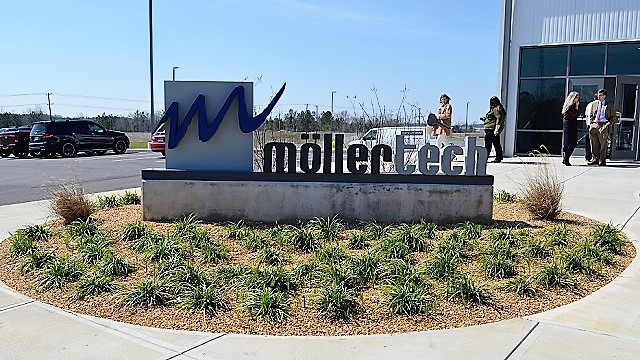
MöllerTech officially opened its $46.3 million auto supplier plant in Bibb County yesterday morning as the Mercedes-Benz supplier prepares to produce parts for the next generation of vehicles at the German automaker’s Alabama plant. The plant already has equipment installed and 50 workers in place in the facility in the Scott G. Davis Industrial Park. “About 18 months ago we had the groundbreaking. So, here we are in this wonderful facility and with 50 people employed already,” said Steve Jordan, MöllerTech North American CEO. “A lot of these individuals have already grown within the organization, so I’m looking forward to employing more. I think we will be up to 220 at the end of 2019.” Those workers will produce interior parts to go in the vehicles that Mercedes will build in neighboring Tuscaloosa County after the automaker completes a $1 billion expansion later this year. “It’s a challenging time for us as we get ready for the next generation of cars,” said Jason Hoff, CEO of Mercedes-Benz U.S. International. “We have a lot of work to do on our own facility. We’re completing our $1 billion investment that we announced a couple of years ago. So, you know, it’s getting into the crunch time.” Economic developers are feeling that “crunch time” as they seek to provide industrial sites and a workforce ready to take jobs as the automotive industry continues to grow in the state. “We expect to continue to see growth in the automotive sector,” Alabama Commerce Secretary Greg Canfield said. “With the density of OEMs (original equipment manufacturers) locating in the state of Alabama, we’re going to see more and more interest from the supply chain looking at Alabama because, hey, Alabama is the now the center and the heart of the Southern automotive sector.” Within the existing automotive industry in the state, Alabama has to be ready to shift as the industry shifts into areas like electric vehicles and other advances. “The supplier market has to be responsive to (change) as well and as that happens in economic development we have to be prepared with sites and facilities,” said Brian Hilson, CEO of the Birmingham Business Alliance. “We also have to be prepared from a workforce standpoint because we will have new technologies and workforce requirements that will go with those that we will have to be ready for.” Canfield said Alabama is already working closely with and their suppliers to prepare for change years in advance. “The interesting thing that we find about the automotive sector that really makes it a lot of fun to work with is they’re thinking so far in advance,” he said. “So, when we engage with the automotive OEMs and tier ones and other suppliers down the line – whether they’re tier two or tier three – we’re talking about impacts that are going to occur three to five years in the future. That really helps us get a better understanding of the direction and the flow of the automotive sector in Alabama.” Jordan said even before the new MöllerTech plant produces its first part for Mercedes, his company is already anticipating getting a contract for future work. “Our company is 290 years old. We’ve just opened this building and we plan to be here for many, many years to come,” he said. “So, with this next generation of Mercedes vehicles we currently have, we want future ones as well. We hope to have a great future and partnership with Mercedes.” Republished with permission from the Alabama NewsCenter.
Birmingham Business Alliance urges Alabama Legislature for policy support
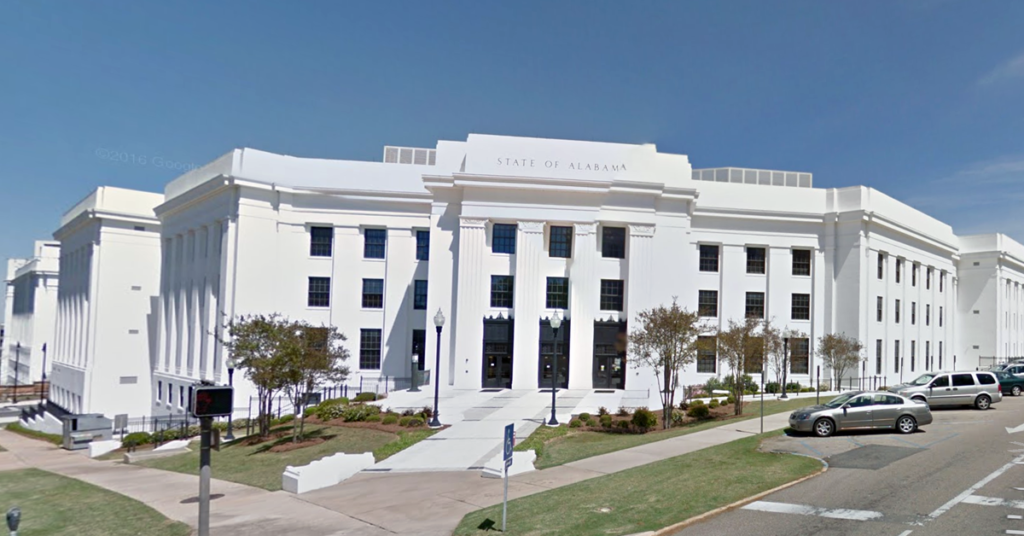
The Birmingham Business Alliance (BBA) is seeking legislative support from the Alabama Legislature. On Thursday, the group released a message urging members of the state Legislature to pass several bills to help the region grow in jobs and capital investment. “Supporting these legislative priorities and advocating for issues that put the Birmingham region in a competitive position increases our ability to attract and retain business and a quality workforce,” said CEO and president of the BBA, Brian Hilson. “We are making sure legislators statewide have the facts about each of these issues and how they can affect all communities in Alabama.” These are the issues and bills the BBA is watching closely and advocating for: The passage of a tax to add an open-air stadium to the Birmingham Jefferson Convention Complex. Already, the Jefferson County Commission has committed $30 million and the City of Birmingham has affirmed its intent to support the project. The stadium is part of the BJCC’s $300 million master plan that also includes a modernized Legacy Arena and outside renovations. A modernized BJCC and new stadium will improve our region’s ability to host large-scale conventions, trade shows, sporting and entertainment events, and draw more people here from around the country. Thousands of business professionals visit Birmingham every year by attending conferences and conventions, and their perception of our city is lasting and critical to our economic development efforts. The stadium will also have a positive impact on communities north of downtown Birmingham. The passage of The Alabama Jobs Enhancement Act (HB317), which clarifies that legitimate economic development activities do not qualify as lobbying.Passage of HB317 would eliminate any requirement for economic developers and site selection consultants to register as lobbyists, while actual lobbyists will still be required to register as lobbyists, and it will provide for more transparency of economic development incentives. Failure to pass HB317 would result in fewer economic development opportunities for Alabama and fewer jobs for our citizens. Any threat to the passage of this critical legislation puts jobs at risk, and impedes both the region’s and the state’s ability to continue to build on recent economic successes, such as the MercedesBenz facilities in Bibb County, which will create 691 jobs, and the Autocar plant in Jefferson County, which will create 746 jobs. Our competitors in other states are watching this legislation and are ready to use it to their advantage if HB317 doesn’t pass. Increased investment in infrastructure. Considering President Trump’s recently released infrastructure plan, Birmingham and Alabama must be prepared to move forward to ensure that our state does not miss out on any available funding to repair crumbling roads and to build the roads and bridges that commerce and our workforce rely on daily. Our state needs a new funding mechanism to address road and bridge construction and maintenance. We are in immediate need of additional state revenue that will address both our short- and long-term infrastructure projects. “Public policy is an important part of our work at the BBA and we will continue to advocate for legislation that supports our purpose of increasing jobs and capital investment for the region,” said senior vice president of public policy for the BBA, Waymond Jackson.
Birmingham-based XpertDox raises $1 million in funding
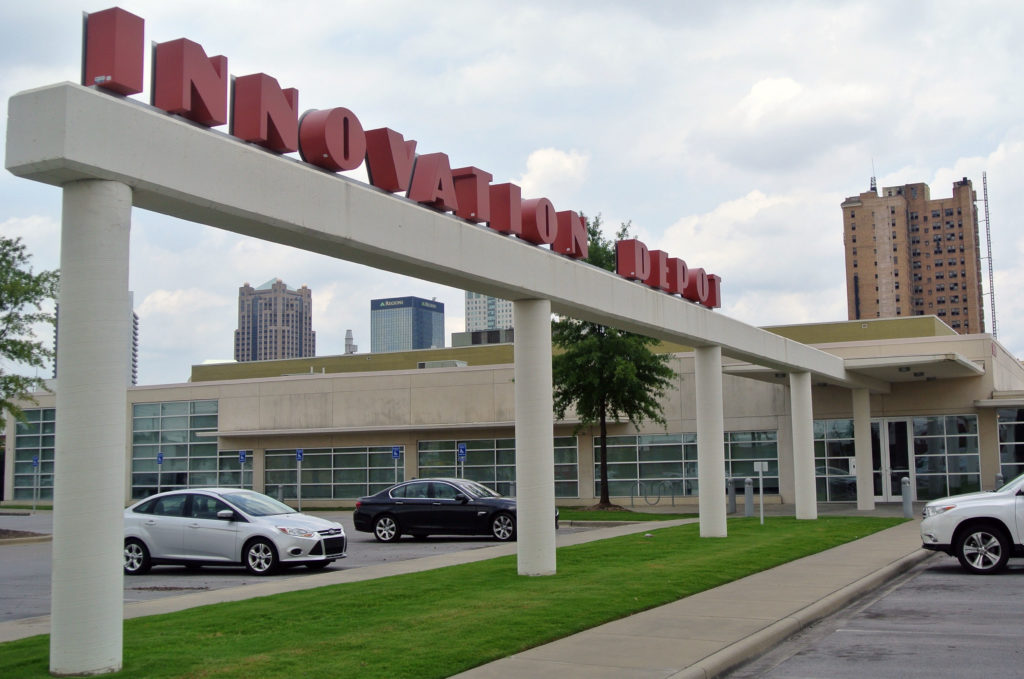
XpertDox, a Birmingham-based startup has closed a $1 million seed funding round. Led by a group of private investors based in Birmingham, Ala. with coordination from the Birmingham Business Alliance, the company will use the money to advance its technology platform and add talent to its team. XpertDox, which is located in Innovation Depot, leverages big data to improve patient access to health care and accelerate patient recruitment into clinical trials. Enabled by a proprietary algorithm, XpertDox has mapped more than 6,000 diseases, 4,500 hospitals, 18,000 clinical trials and all one million doctors in the United States, all to help patients find the best care for their disease. “The closing of this financing represents a significant milestone for XpertDox,” said Dr. Sameer Ather, president and CEO of XpertDox and a cardiologist, researcher and professor at the University of Alabama at Birmingham. “This funding will allow us to continue to invest in the business, enhancing our capabilities to assist patients in finding the best doctor, hospital or clinical trial for their condition.” “Funding is essential for high-growth startup companies like XpertDox to grow here in Birmingham,” added Devon Laney, president and CEO of tech incubator and accelerator Innovation Depot. “Locally raised funds for a startup are a sign that our ecosystem is getting stronger and that investors in our own backyard are recognizing the potential of backing our entrepreneurs.” Ather has worked extensively with, among others, the Birmingham Business Alliance to advance XpertDox’s corporate development goals. “We are grateful for the support we have received from the Birmingham business community and are dedicated to expanding our operations here,” Ather said. Jon Nugent, Vice President of Innovation and Technology at the Birmingham Business Alliance, applauded XpertDox’s recent success. “We are proud to have XpertDox in Birmingham and look forward to continuing to work with Dr. Ather and his team,” Nugent said.


